Caffeine Consumption Improves Endurance and Enhances Athletic Performance
Good news for anyone looking for another excuse to drink more coffee… research has shown that caffeine can enhance aerobic performance during physical activity. People participating in endurance exercise, competitions and field based sports can utilise caffeine as a tool to improve their athletic performance.
In this blog article, we explore how caffeine improves performance, the types of exercise caffeine most positively impacts, how to determine the right dosage for you and the best sources of caffeine.
How does caffeine improve endurance and enhance performance?
When you consume caffeine, your body increases its production of adrenaline, pushing you into fight or flight mode. This is because caffeine acts as an adenosine receptor antagonist in the body, which influences the central nervous system. This enhances athletic performance by reducing the perception of fatigue and consequently enabling you to go harder for longer.
What types of exercise are enhanced by caffeine?
Low-dose caffeine consumption has been widely accepted as beneficial in the performance of a range of exercises. As an ergogenic aid, caffeine has been found to enhance prolonged, constant-load exercise including running, cycling and skiing, and sustained maximal and supra-maximal activities including swimming and rowing. The enhancement benefits of caffeine are less relevant for strength and power athletes, however high dosages have been found to improve one-rep max performance and general power.
How much caffeine should I consume to optimise athletic performance?
When using caffeine to enhance your athletic performance, it is important to be wary of your personal tolerance. Experimentation with dosage is necessary to find your optimum ingestion/performance level.
The recommended dosage allows 1-3mg per kg of your body weight. For example, 70-210mg is beneficial for a 70kg person. This formula has shown the most positive impact to elicit performance enhancement. Performance does not continue to improve with greater consumption, and higher doses of caffeine may lead to dehydration, headaches, rapid heartbeat and shakiness. If you do not regularly consume caffeine, you will need to slowly work up to this quantity to avoid shocking your system and experiencing the aforementioned negative impacts of higher doses.
Generally you want to find the lowest possible dose that works for you. It may take some time to experiment with this, but once you figure out your optimum caffeine/performance ratio, you can enjoy the performance boost.
When should I use caffeine to ensure I get the most benefits?
Caffeine is rapidly absorbed, but slowly broken down within the body, reaching peak blood concentration between 45 and 90 minutes after consumption, and remaining in the bloodstream for 6-7 hours.
The most positive benefits of caffeine are experienced at peak blood concentration, and thus, ingesting caffeine 1 hour prior to commencing exercise will enable you to experience positive impacts for the duration of your exercise session. For events of longer duration, such as marathons or triathlons, you may find it useful to “top up” your caffeine levels incrementally.
Where should I source my caffeine?
Caffeine is found in a wide variety of food and beverages, and the beneficial effects vary depending on the amounts of caffeine. Caffeinated beverages typically contain between 30-120mg of caffeine, varying between products and brands. Dosing effectively is important; there is a fine line between improving performance and overdoing it.
Coffee is perhaps the most widely consumed source of caffeine, but it may be an unreliable performance booster. A single shot of espresso can vary in caffeine content between 25-214mg depending on the bean, where it's made, and the barista making your coffee. Energy drinks and cola have well-moderated and specified amounts of caffeine, making it easier to effectively self-dose, however, these types of drinks are also filled with sugar and a plethora of other ingredients you may want to avoid.
If you can’t rely on a consistent caffeine dose through your coffee, caffeinated gums are becoming an increasingly popular and practical source of caffeine.
The information sourced from AU Sport outlines common sources of caffeine and the mg per serve:
250ml of instant coffee 60mg (range 12-169mg)
Standard espresso shot 107mg (range 25-214mg)
500ml commercial iced coffee 30-200mg
250ml cup of tea 27mg (range 9-51mg)
250ml hot chocolate 5-10mg
600ml bottle CocaCola 58mg
600ml bottle Diet Coke 77mg
250ml Red Bull 80mg
40g sachet PowerBar Caffeinated Sports Gel 25mg
40g sachet PowerBar Double Caffeinated Sports Gel 50mg
32g sachet Gu Caffeinated Sports Gel 20-40mg
50g sachet Carboshotz Caffeinated Sports Gel 80mg
Use caffeine to enhance your athletic performance.
Caffeine is becoming increasingly popular for improving athletic endurance and performance, which means the market for caffeinated consumables is expanding, making it easier to self-dose and experience benefits.
The effects of caffeine peak between 45-90 minutes after ingestion, and remain in the bloodstream for 6-7 hours. The recommended dosage is 3mg/kg of body mass when taken before or during exercise.
Finding the right dose for you can be a tricky process. Speaking with your Dietitian will help you better understand the best regime for you, in order to hit peak performance. If you’d like to book a consultation with a TMS Dietitian, you can do so here.
Quick Dietitian tips for incorporating caffeine:
Make yourself a coffee smoothie as a pre-workout snack - a shot of coffee, milk of your choice, banana and oats.
Pick up some No Doz from your local supermarket; each tablet contains 100mg of pure caffeine.
During long distance events, use energy gel containing caffeine for a boost.
Try Healthspan Kickstart Gum or Revvies Energy Strips. These are batch tested, and therefore safe for athletes in professional sport.

